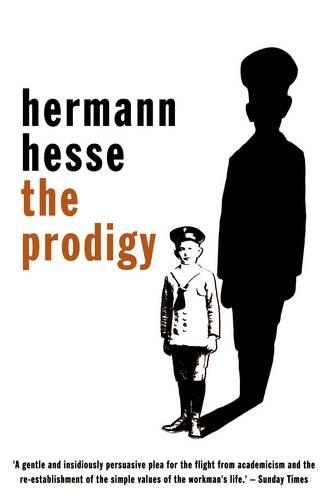
The Prodigy
(Paperback, New Edition)
Publishing Details
The Prodigy
By (Author) Hermann Hesse
Translated by Hilda Rosner
Peter Owen Publishers
Peter Owen Publishers
1st April 2014
1st January 2014
New Edition
United Kingdom
Classifications
General
Fiction
Fiction in translation
833.912
Physical Properties
Paperback
208
Width 129mm, Height 184mm
Description
The Prodigy, originally dating from 1905, is Hermann Hesse's bitter indictment of conventional education. It is the story of Hans Giebenrath, the brilliant young son of provincial bourgeois in southern Germany who becomes the first boy from his town to pass into a prestigious Protestant theological college. His spirit, however, is systematically broken by his parents and teachers; over-anxious about his success, they forget to consider his health and happiness. Subsiding into a fatal apathy, he is taken home for medical reasons. Here he falls in love, becomes an engineer's apprentice, learns to drink alcohol and eventually dies by drowning.
Reviews
""A gentle and insidiously persuasive plea for the flight from academicism and the re-establishment of the simple values of the workman's life."" --Sunday Times
""It is unusual for a writer to begin with sincerity alone and to advance to a more complex apprehension of life without surrendering his pristine innocence. This has been Hermann Hesse's achievement."" --Observer
""Written with deep sympathy . . . certainly makes you willing to read more of Herr Hesse."" --New Statesman
"A gentle and insidiously persuasive plea for the flight from academicism and the re-establishment of the simple values of the workman's life." --"Sunday Times"
"It is unusual for a writer to begin with sincerity alone and to advance to a more complex apprehension of life without surrendering his pristine innocence. This has been Hermann Hesse's achievement." --"Observer"
Author Bio
Counted among the leading thinkers of the twentieth century, HERMANN HESSE was born in 1877. Rebelling against a stern monastic education, he worked as a locksmith and a bookseller before embarking on a 65-year writing career. Having travelled as far as India, he settled in Switzerland in 1911 in opposition to German militarism. Awarded the Nobel Prize in 1946, he died in 1963 aged eighty-five.
